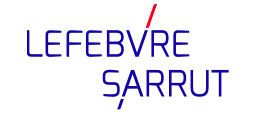Transposition of the CSRD directive : Interview with Pascal Durand, MEP
MEP Pascal Durand, rapporteur on the text – who notably represented the European Parliament in its institutional negotiations with the Council of the European Union – comments on the fundamentals of the directive.
How would you define the CSRD and its legal significance?
The directive on the publication of information on sustainability by certain companies (CSRD – Corporate Sustainability Reporting Directive), adopted in November 2022, marks the advent of rigour and the end of arbitrariness in non-financial reporting. The sustainability report will become just as important as the statement of financial position. The directive does not confine itself to requiring information on financial materiality, which, based on the theory of risks, determines how the value of a business is affected by its environment, but also asks how the activity of that business affects its environment: it’s a two-way materiality.
The legislation applies to large companies – over 250 employees –, of which there are about 50,000 in the EU, banks included.
Following a transitional period which ends in 2028, it will also apply to listed SMEs, but in accordance with standards that are “proportionate”, to avoid their shying away from IPOs.
The EU legislator has established extraterritorial jurisdiction for third-country (non-EU) companies that operate in the EU market, following the example of the IFRS defined in the US. Starting in 2025 these rules will apply to third-country undertakings with a turnover of €150 million or more, in order to ensure that there is a level playing field for companies operating in the internal market.
Information on climate impact and human rights will be subject to a certified audit, as is already the case for financial statements. This audit may be carried out by accredited independent bodies, including law firms, in all Member States that authorise it.
What are the consequences for the transformation of the role of businesses?
The adoption of these new uniform reporting standards allows companies to apply a legal framework adapted to a changing world. Indeed, companies must now incorporate a general interest dimension and in fact they now have a more social calling, particularly as regards implementing the Paris Agreement and the United Nations SDGs. The question of sustainability is inseparable from the value of the company. Admittedly price signals will often still be the determining factor, but they can no longer be the only indicator of production or commercial exchanges.
The adoption of these new transparency obligations will imply their being taken into account at every level of the business: from purchasing and production departments to boards, investors, shareholders and trade unions.
To guide this transformation, the European Commission has mandated EFRAG, the European Financial Reporting Advisory Group, to draw up these non-financial standards.
An initial set of standards was approved by the co-legislators on 18 October 2023 and will start to be applied from 2024, with initial reporting in 2025.
This directive, relating to a simple reporting obligation, calls for the provision of a scorecard on sustainability criteria, which would serve the company in its governance, as well as investors and other stakeholders. Over and above the additional reporting burden, it provides information that is essential for the continuity of the business over time and its reputation.
The standards chosen by the EU are very largely based on international standards already in use by the companies themselves and therefore will not represent an additional burden. On the contrary, they will make international exchanges on value chains more fluid. The data will be subjected to a strict materiality process which will ultimately reduce the number of reports, limiting them to those most relevant to the company concerned.
When and how do you think it will be implemented at the national level?
Member States have until June 2024 to adopt national transposition measures.
The organisation of the auditing profession, supervision and the sanctions regime, applying both to the reporting companies and to the auditors certifying the reports, are left to the discretion of the Members States.
To date, only a minority of Member States have announced that they would open up their audit markets to non-auditor professionals, which is regrettable since it will prevent competition from becoming more open.
The CSRD is a major step forward towards a more transparent, fairer and more effective EU market. It also forms part of the EU’s move to assert itself as a sovereign and independent legislator on sustainability. It also forms part of a determined drive, reaffirmed with the Green Deal, to establish precise EU rules on the green taxonomy, climate transition plans, and issues concerning the environment, biodiversity, human and social rights.
Lastly it will serve to support future legislation on the duty of vigilance and transparency in value chains
interview published in Recueil Dalloz
